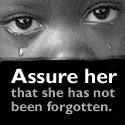As I’ve mentioned many times lately, our church is spearheading an outreach campaign called Everyone A Chance to Hear – EACH. Over 300 churches and ministries in the Southeast Michigan area are involved. When I heard about Mark Mittelberg’s latest book, ‘The Questions Christians Hope No One Will Ask (With Answers) ,' I thought it was right up my alley to get prepared for EACH.
,' I thought it was right up my alley to get prepared for EACH.
Here is the synopsis of this book:
Are there questions you dread being asked? Maybe you dread asking them even of yourself. They’re the ones of subjects such as hell, homosexuality, or suffering.
Through a national poll conducted by the Barna Group, Mark Mittelberg uncovers the questions Christians most fear being asked.
Complete with discussion questions, Mark’s book will help you meet today’s hot-button issues head on.
Here is the biography of this author:
Mark Mittelberg is a best-selling author and a leading strategist in apologetics-oriented outreach. His books include The Unexpected Adventure
This book covers the controversial topics: evolution, Jesus as God, abortion, homosexuality, the hypocrisy of some Christians, the reality of heaven and hell, etc…
In the Introduction, Mr. Mittelberg suggests we need to have three elements in order to “have the right response for everyone:” preparation, prayer, and proximity. And our purpose is important as well:
Our aim should not be to address every fine point or nuance about every issue or to try to exhaustively satisfy our friends’ curiosity regarding each question. Rather, as the verse puts it, our goal should be to “destroy every proud obstacle that keeps people from knowing God” (2 Cor. 10:5, emphasis mine).
So don’t elevate every issue or make your friends feel that they must agree with you on every subpoint before becoming a Christian. Doing so could inadvertently add new and dangerous obstacles to their spiritual journey. Instead, give just enough information to help them move past their spiritual barriers and toward faith in Christ. Then, after they are committed followers of his, they can go back and study every subject to their hearts’ content – now with the help of the Holy Spirit illuminating their search as children of God. (p. xix-xx)
We also need to have the proper motivation:
Our goal cannot be merely to win the argument, but rather – with the help of the Holy Spirit – to win the person to Christ. This is the purpose that will shape how we’ll address each of the questions in the chapters that follow because ultimately it will be the care and concern that we show, even more than the words we say, that will draw our friends to God. (p. xx)
The primary question in Chapter 6 is “Why is abortion such a line in the sand for Christians – why can’t I be left alone to make my own choice for my own body?” That is one of the most divisive questions/issues in our society, and has been for decades, and probably will be for decades to come. Mr. Mittelberg’s response is directly out of the Bible:
As Christians, it’s important for us to point not just to what science tells us about the nature of preborn human beings but also to what Scripture says. Many of our friends and family respect the message of the Bible, especially when the Bible speaks about character and morals. In fact, many who don’t claim to be Christians would give serious consideration to its teachings on abortion if we would clarify that abortion is a moral issue, just as compassion, kindness, and love are. (p. 168)
Another issue that keeps people from following Christ is the judgmentalism of His followers. Interestingly, non-believers often engage in that same behavior:
What’s fascinating is that the people who condemn Christians for acting as if they’re right and others are wrong are, in that very action, acting as if they themselves are right and Christians are wrong. So they are at that moment doing the very thing they say is wrong. When you think about it, it’s pretty silly to condemn people for thinking they are right – because aren’t you simultaneously thinking you are right in saying they are wrong? Or, broadening the point a bit, who in their right mind doesn’t consistently think they are right? Seriously, if a sane person thinks he is wrong, doesn’t he immediately change his thinking and begin to believe what he now thinks is actually right? If, then doesn’t he once again think he is right and that anyone who contradicts his new belief is, by the very nature of logic, wrong? Don’t we all think that way? I mean, really, do you ever think you’re wrong while you’re in the midst of thinking that very thought? I don’t think so; I think as soon as you start to realize your thinking is wrong you change your belief and start thinking differently! Therefore, for two reasons no one should condemn Christians just for thinking they’re right and others are wrong: (1) everyone else does the same thing, and (2) Christians might really be right, after all. (p. 241)
Each chapter summarizes the answer for the question(s) covered, as well as ‘Tips for Talking About This Issue.’ And each chapter concludes with Questions for Group Discussion; this would be a great book for a Life/Small Group.
This book is very biblically based and scripturally strong. I appreciate the fact that Mark shares his wealth of knowledge about God with us, and I commend this book to one and all – believers and non-believers alike.
You can order this book here .
.
This book was published by Tyndale House Publishers and provided by them for review purposes.




























.jpg)







No comments:
Post a Comment